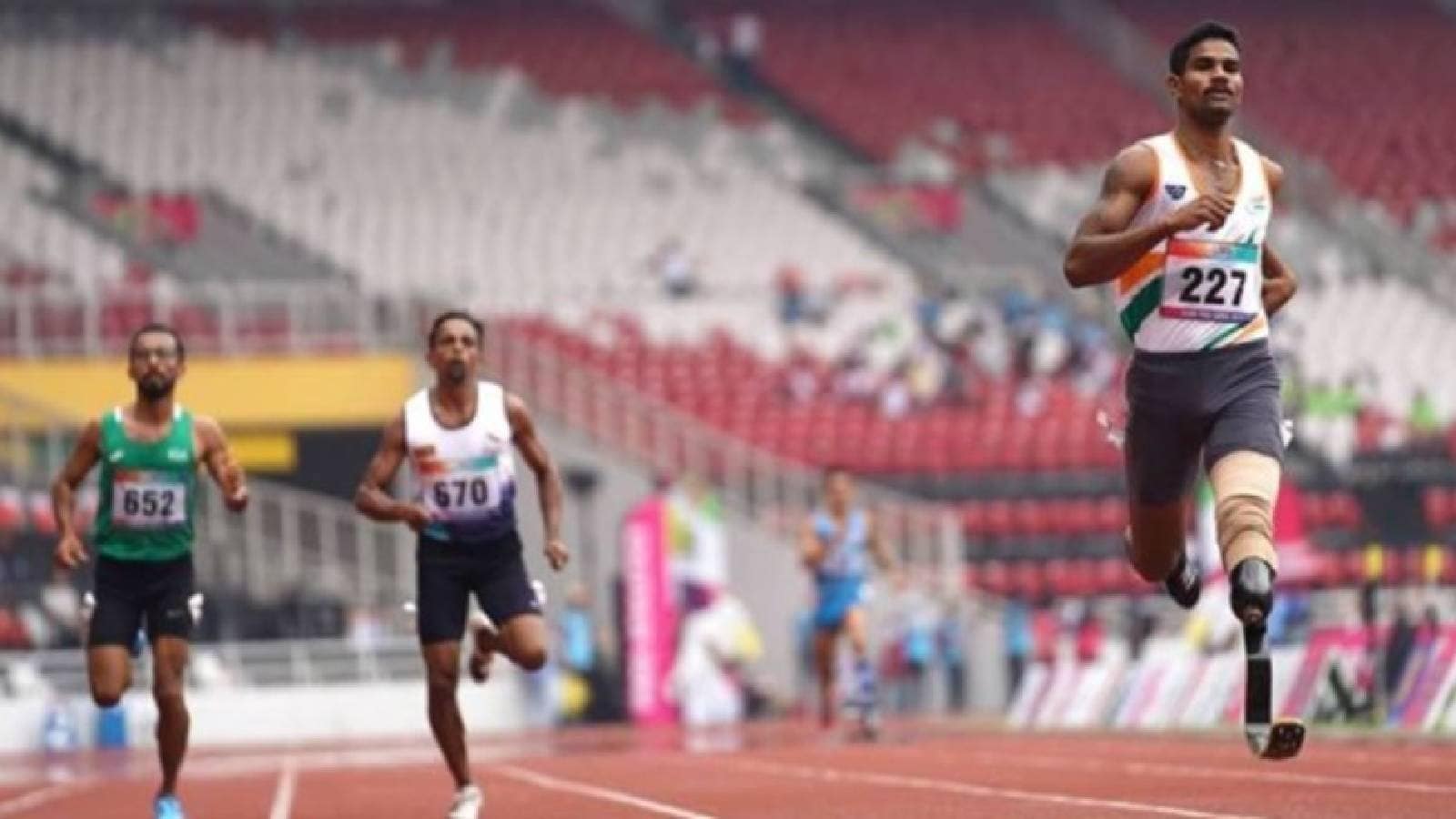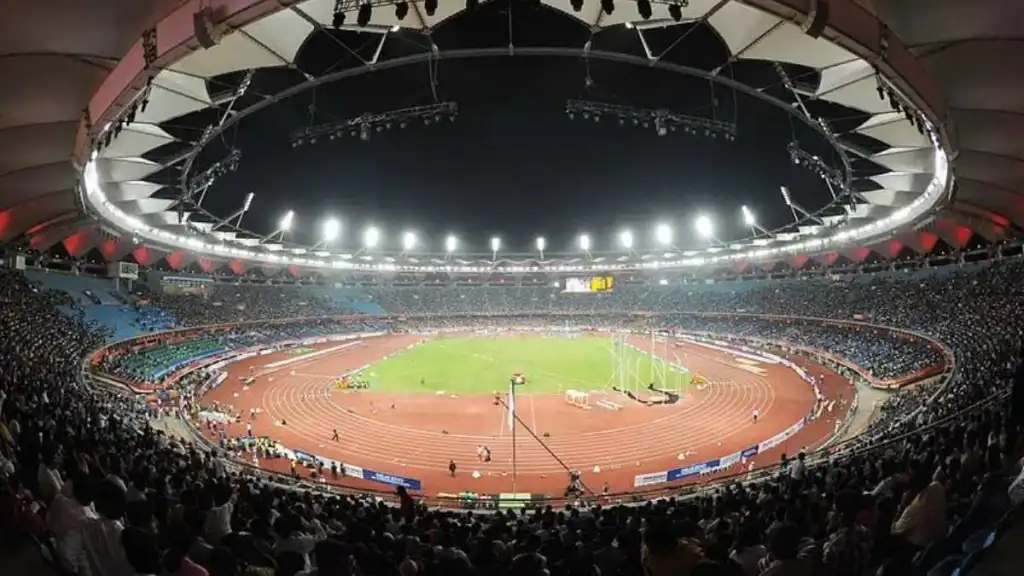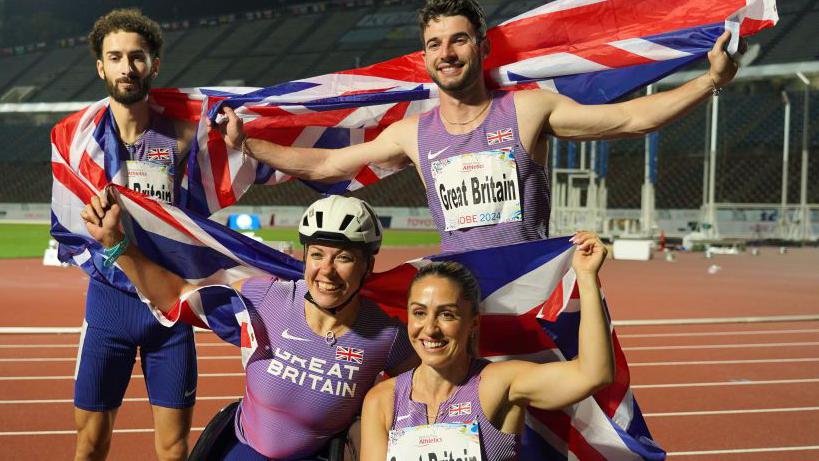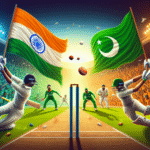The year 2025 is set to be historic for Indian sports as New Delhi will host the World Para Athletics Championships for the very first time. This is not just another international sporting event; it is a celebration of human spirit, resilience, inclusivity, and the growing recognition of para sports in India and across the globe. For decades, para athletes have broken barriers, rewritten records, and inspired millions with their courage and determination. By bringing the World Para Athletics Championships to Indian soil, the country is not only opening its doors to some of the greatest athletes with disabilities from around the world but also sending out a strong message that India is committed to building a sporting ecosystem that includes everyone. This event is more than a competition; it is an opportunity to change perceptions, inspire the next generation, and demonstrate that para athletics deserves the same respect, recognition, and excitement as any other global sporting championship.

The arrival of the World Para Athletics Championships in New Delhi holds a symbolic value that cannot be overstated. India has been making steady progress in the field of para sports, with athletes like Devendra Jhajharia, Mariyappan Thangavelu, Sumit Antil, and Manish Narwal bringing home medals and honors at the Paralympic Games and other global competitions. Their achievements have not only highlighted the immense potential of Indian para athletes but also sparked nationwide conversations about accessibility, training facilities, and support systems for people with disabilities. By hosting the championships in 2025, India is stepping onto the global stage as a proud advocate for inclusivity in sports. This event represents a chance for the country to showcase not only its athletes but also its capacity to organize world-class tournaments that meet the standards of accessibility and inclusivity required for para sports.
For the athletes, the New Delhi championships will be a platform to push boundaries and achieve new milestones. More than 170 nations are expected to participate, bringing thousands of para athletes to India. They will compete across a wide range of events including sprints, middle- and long-distance running, jumps, throws, and multi-event competitions adapted for different classifications of disabilities. Each performance will not only be about medals but also about inspiring stories of perseverance. Para athletics is unique because every athlete’s journey to the track is a story of overcoming immense challenges, whether they are physical, social, or psychological. Watching these athletes in action will remind spectators that sport is not just about physical ability but also about mental strength, courage, and the determination to never give up. For Indian fans, it will be a golden opportunity to witness firsthand the talent and grit of athletes they may have only read about in headlines.

From a national perspective, the championships will also serve as a catalyst for the growth of para sports in India. One of the major challenges para athletes face in the country is the lack of infrastructure specifically designed for their needs. Training centers often lack accessible equipment, coaching staff with specialized knowledge, and medical or psychological support tailored for athletes with disabilities. Hosting the World Para Athletics Championships requires India to upgrade facilities, ensure accessibility in stadiums, transportation, and accommodation, and invest in new technologies that support para sports. These improvements will not vanish after the event—they will remain as legacies that benefit future generations of Indian para athletes. In this sense, the championships will not just be a one-time spectacle but a long-term investment into the country’s sporting ecosystem.
For Indian para athletes, competing on home soil will add an extra layer of motivation. The roar of the crowd, the presence of family and friends, and the feeling of representing India in front of a home audience will drive them to perform beyond limits. Athletes like Sumit Antil, who already hold world records, will look to defend or even surpass their achievements. Others, particularly emerging athletes, will gain invaluable experience competing against the world’s best right at home. The exposure to global competition, the chance to measure themselves against international standards, and the inspiration drawn from being part of a large-scale inclusive sporting event will shape their future careers. For young children with disabilities watching from the stands or on television, the championships will serve as proof that they too can dream of becoming world-class athletes.
Beyond sports, the World Para Athletics Championships in New
will also have a cultural and societal impact. Events of such scale attract global media coverage, creating awareness about para sports and disability rights. The championships will highlight the importance of accessibility in everyday life, from public transport systems to hotels, stadiums, and communication platforms. For a country like India, where awareness and infrastructure for people with disabilities are still developing, this spotlight can accelerate change. Policymakers, corporations, and civil society will be pushed to rethink how inclusive Indian cities and systems really are. The championships will thus not only leave behind sporting legacies but also contribute to broader social progress toward inclusivity and equal opportunity.

Economically too, the event promises to be significant. Large-scale international championships bring with them tourism, business opportunities, and global attention. New Delhi will welcome thousands of athletes, coaches, officials, journalists, and fans from across the globe, creating a surge in hospitality, travel, and retail sectors. Local businesses, from food outlets to merchandise shops, will benefit from the influx. Moreover, the visibility of New Delhi as a host city will strengthen its profile as a capable destination for global sporting events, potentially opening the door to more international tournaments in the future. In this way, the World Para Athletics Championships is not just about sports—it is about positioning India as a global hub for inclusive sporting excellence.
The excitement leading up to the championships will also generate conversations about the role of technology in para sports. Adaptive sports equipment, prosthetics, wheelchairs designed for racing or throwing, and assistive devices play a crucial role in enabling athletes to perform at their best. By hosting the championships, India will likely see collaborations with global innovators and manufacturers in this field, giving Indian athletes access to advanced equipment and technologies. This exposure will help Indian para athletes compete on equal footing with their global counterparts and push the boundaries of performance. Furthermore, the championships will also encourage Indian universities, startups, and research institutions to explore innovations in sports science and adaptive technology, contributing to long-term advancements in the field.
The media coverage surrounding the championships will also play a decisive role in shaping public perception of para sports. For far too long, the achievements of para athletes have been celebrated quietly, often overshadowed by mainstream sports. The 2025 event offers Indian media an opportunity to change that narrative, putting para athletes in the spotlight they truly deserve. Documentaries, interviews, live coverage, and human-interest stories will highlight not only the athletic achievements but also the personal journeys of resilience behind them. This shift in visibility can go a long way in ensuring para athletes receive the sponsorships, endorsements, and recognition that can sustain their careers and inspire others.
At its core, the World Para Athletics Championships is about more than medals. It is about redefining the way society views ability and disability. Every race run, every throw made, and every medal won is a victory not only for the athlete but also for the idea that sport can and should include everyone. In New Delhi, the sight of athletes from diverse nations, with diverse abilities, competing on equal terms will challenge stereotypes and inspire inclusivity. This is why the 2025 championships will be remembered not only as a sporting milestone for India but also as a cultural moment that pushed the country closer toward becoming a society that embraces diversity and equality.
As the countdown to September 2025 begins, excitement will build across India and beyond. Schools, colleges, and sports academies will organize awareness drives, cultural events, and celebrations around the championships. Fans will prepare to witness history unfold in their own city, while para athletes will train harder than ever for their chance to shine. For India as a nation, the event will be an opportunity to demonstrate its organizational strength, hospitality, and cultural vibrancy to the world. For the athletes, it will be an arena to prove their mettle, break records, and inspire millions. For society at large, it will be a reminder that greatness comes in many forms and that disability does not limit human potential.









